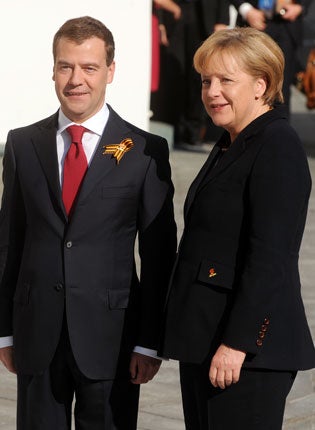Spectre of Greek payout brings humiliating defeat for Chancellor Merkel's coalition

Your support helps us to tell the story
From reproductive rights to climate change to Big Tech, The Independent is on the ground when the story is developing. Whether it's investigating the financials of Elon Musk's pro-Trump PAC or producing our latest documentary, 'The A Word', which shines a light on the American women fighting for reproductive rights, we know how important it is to parse out the facts from the messaging.
At such a critical moment in US history, we need reporters on the ground. Your donation allows us to keep sending journalists to speak to both sides of the story.
The Independent is trusted by Americans across the entire political spectrum. And unlike many other quality news outlets, we choose not to lock Americans out of our reporting and analysis with paywalls. We believe quality journalism should be available to everyone, paid for by those who can afford it.
Your support makes all the difference.Chancellor Angela Merkel's ruling coalition was seriously weakened last night after her party suffered a humiliating defeat in a key regional state election which was certain to deprive her government of its crucial working majority in Germany's upper house of parliament.
The vote in Germany's most populous state of North Rhine Westphalia was overshadowed by the Greek debt crisis. Support for Ms Merkel's conservative Christian Democrats dropped by a record 10.3 per cent, ousting her party's coalition with the liberal Free Democrats in the state. Wolfgang Bosbach, a senior conservative, described the result as a " great disappointment" for the Christian Democrats, who had been hoping to maintain control of Germany's most economically powerful state which is home to 18 million of the country's 80 million inhabitants. Hermann Gröhe, a top conservative official, admitted that "worry about Greece" had influenced the vote.
The defeat for Ms Merkel's party was its worst ever drubbing in the state. The result was widely attributed to her government's decision last Friday to approve a hugely unpopular €22.4bn German bailout for Greece. Opinion polls suggest that up to 80 per cent of Germans remain opposed to the idea. Ms Merkel's own popularity rating has dropped from 70 to 48 percent in recent weeks.
Initial projections suggested that the opposition Social Democrats, who polled just over 34 per cent of the vote, emerged as the state's strongest party by only a hair's breadth with the environmentalist Greens polling over 12 percent – their best result in the state. The liberal Free Democrats and the former Communist The Left Party won seats in the state parliament with 6.5 and six per cent respectively.
The result left open which constellation of parties would form a government in the state. The necessary overall majority of 91 seats appeared only feasible through a grand coalition of conservatives and Social Democrats or with a so-called red-red-green coalition of Social Democrats, Greens and The Left Party. The conservative share of the vote, which dropped from 44 per cent to 34 in the state, amounted to a grave blow to Ms Merkel's Berlin coalition with the pro-business Free Democrats only six months after it was swept to power in Germany's September election.
Her government will now lose its majority in Germany's upper house of parliament, the Bundesrat. As a result her administration will be forced to bargain with other parties in the upper chamber if it is to implement its election promises which include tax cuts, an extension of the country's nuclear power programme and health reform.
Claudia Roth, a leading Greens party MP described the outcome as a major defeat for Ms Merkel: "The majority situation in the upper house will now change. That's the bill for her party's defeat," she told Germany's ARD television channel.
The state election had become increasingly dominated by the German bailout for Greece. Despite its unpopularity Ms Merkel had toured the state insisting that the rescue package was essential to shore up Greece, the Euro and Germany.
Join our commenting forum
Join thought-provoking conversations, follow other Independent readers and see their replies
0Comments